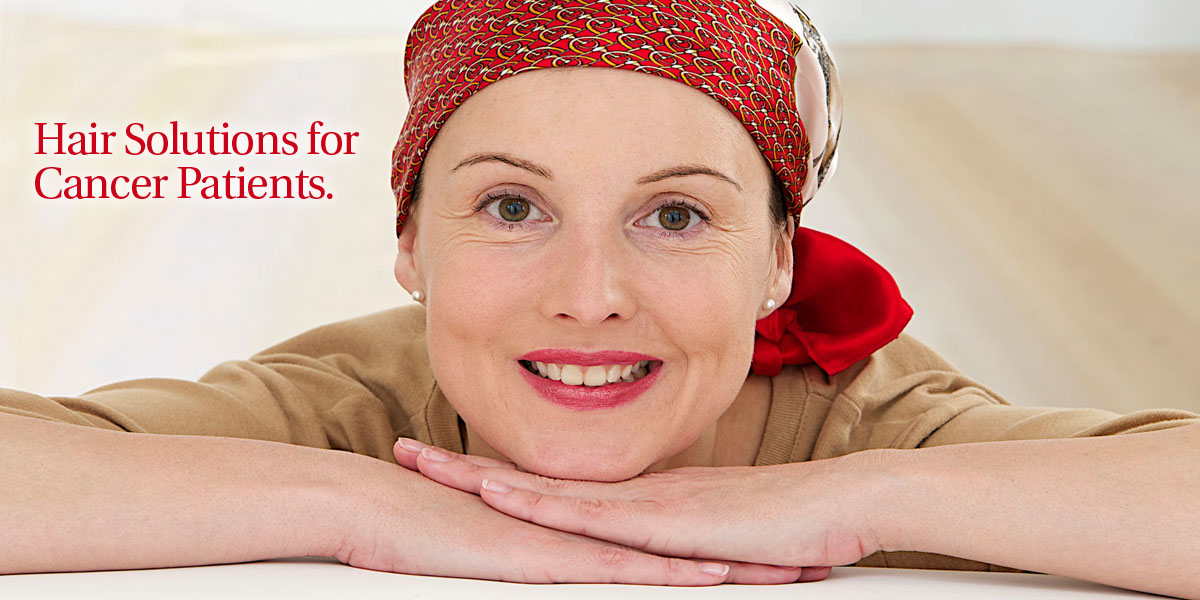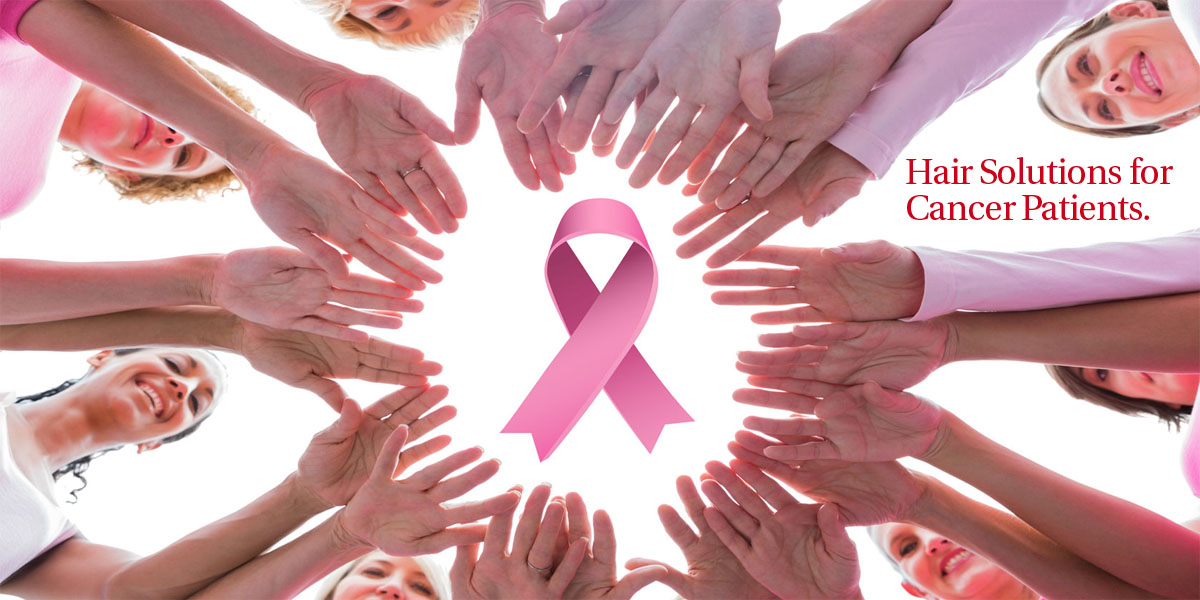
Chemotherapy Hair Loss
Losing your hair from chemotherapy treatments can be very difficult to go through.
Helping clients get through this difficult time is a passion of ours. Being able to give someone the feeling of looking at themselves in the mirror again, is so rewarding. We also realize that between chemotherapy treatments and recovery, it can make it difficult to travel. This is why we offer Private IN-HOME Consultations and Fittings.
During the At-Home Consultation, we will educate you on what to expect with hair loss due to treatments, and help you pick out something to wear during this time. We will provide wigs and hats for you to try on and feel. This will help you to make a decision on what will work for you.
Please call for an In- Home Consultation at 630-777-4082.
How to make the best of it
Your hair loss generally can’t be prevented or controlled, but it can be managed. Take the following steps throughout your treatment to minimize the frustration and anxiety associated with hair loss.
Tips to take to help make the best out of your chemotherapy hair loss.
Trying to accept that loosing your hair is and can be a side effect from the chemotherapy medication and that this hair loss is only temporary. Hair loss from can't be prevented or controlled. The hardest part of this time period is knowing and anticipating that you will probably loose your hair. Know it's not easy for anyone to loose their hair. Getting a plan and the right mind set will help. Once you start to loose your hair, reality hits and the anticipation goes away. During this time finding the right protection from natures elements and/or finding a style that will maintain your look will help.
Before Chemotherapy Treatments
Start to be very gentle to your hair and scalp area. Discontinue coloring your hair, as this can weaken and irritate your existing hair and scalp. Avoid heat to your hair or limit usage, with curling irons, flat irons and hot rollers. Some people choose to cut their hair shorter, helping to create volume as hair starts to fall. Others will cut their long hair to a shorter style, to help them transition into loosing hair. Start looking for head coverings such as wigs, hats and scarves to help protect your head from hair loss and/or help with maintaining the way you look. Ask doctor to write a prescription for a cranial prosthesis and check with your insurance for possible coverage.
During Chemotherapy Treatments
Continue to be gentle with your hair and scalp. Typically around 10-14 days after your second treatment you may start to feel a tightening sensation at scalp. This is usually the first sign that your hair loss is going to start. Wearing a soft hat to bed or around the house can help to catch hairs as they start to fall.Brushing hair daily is very important, sometimes hard to see, but otherwise hair can start to dread and become very tangled. At this time is when most people will convert into their new look with hats or wigs. Picking a good time emotionally, most will buzz down their hair to super short crew cut style. Do not shave down to look bald, doing so will create stubble that will cause friction at the scalp, causing scalp to be irritated. Remember your hair protects your scalp, so as you loose your hair your scalp will become very sensitive to touch, temperature, wind ect. Head Coverings will protect your scalp from sun, wind, temperatures, bumping into things ect.
After treatment
Continue to be gentle to your hair and scalp. Hair typically starts growing back around the three months mark, after your last chemotherapy treatment. As your new hair starts to grow in, it will be very fragile, similar to a new born babies hair. Hold off on any chemical treatments such as color. Be patient. Around the six month mark is about when your hair will be long enough to wear in a short style.

Radiation therapy can also cause hair loss
Radiation therapy attacks the growing cells in your body, this only affects the specific area where the treatment is applied. Hair loss during radiation to head area is also expected. Hair will usually start to grow in after treatments are done. Sometimes your new growth will be different in thickness or fullness when it starts to grow back. Often higher doses of radiation can cause permanent hair loss. Radiation will also affect your skin, applying creams and head coverings will help during these treatments.

